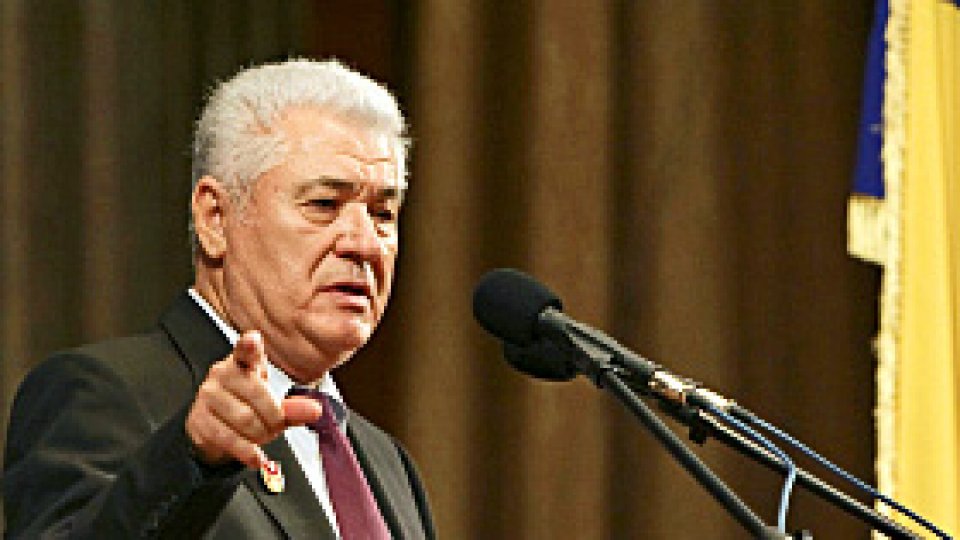Elections without Voronin
The Constitutional Court in Chisinau decided on Tuesday that Vladimir Voronin, the leader of the Communists’ Party, will no longer be able to run for president, having served two consecutive terms.

06 August 2010, 08:50
The Constitutional Court in Chisinau decided on Tuesday that Vladimir Voronin, the leader of the Communists’ Party, will no longer be able to run for president, having served two consecutive terms, from 2001 to 2005 and from 2006 to 2009.
This ruling, which was predictable enough, seems to have signalled the unofficial start of the election campaign for the voting in November. The presidential elections may take place at the same time with the parliamentary elections. In a referendum on the 5th of September, Moldovan voters will say whether they wish to elect the president themselves by direct voting.
The interim president Mihai Ghimpu implied that after this referendum, he would dissolve parliament and call early elections. Also on Tuesday, prime minister Vlad Filat announced that the Liberal Democratic Party would have its own candidate, though so far, the ruling alliance has had a single candidate for president, namely the leader of the Democratic Party, Marian Lupu. The fact that Vladimir Voronin can no longer run for a new term makes things difficult for the Communists’ Party, which has no other leaders of Voronin’s stature that can run for president. Under the circumstances, many observers believe the Communists’ Party will see a significant drop in voter preferences and rule out the possibility for this party to return to power.
Being now official that Voronin cannot run again has paved the way for a change of Moldovan elites at the top of the pyramid. Politically speaking, Voronin is seen as a thing of the past, but the question now is whether the new generation of leaders like Filat and Lupu can usher in change. Both built their careers in the Voronin era. As a speaker of parliament at a time when the communists had majority, Lupu used to be Voronin’s right hand, while Filat only became an anti-communist after 2007.
His ambiguous position towards the absence of Moldovan troops from the 9th of May parade in Moscow was a disappointment for many voters in the pro-Romanian and pro-European camp. While Voronin was the representative of a neo-communist, anti-Romanian and anti-European Moldova, political analysts wonder whether Filat and Lupu are the advocates of a new Moldova, one that has broken definitively with communism and wishes to integrate into Europe and clarify its cultural and spiritual identity.
(Radio România Internaţional, Serviciul în limba engleză).














